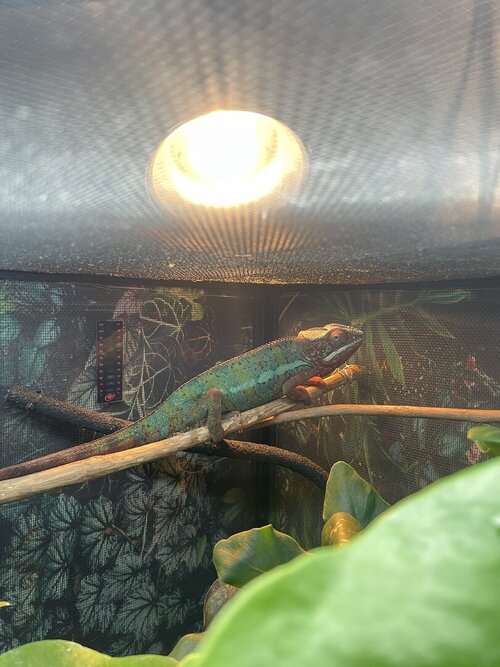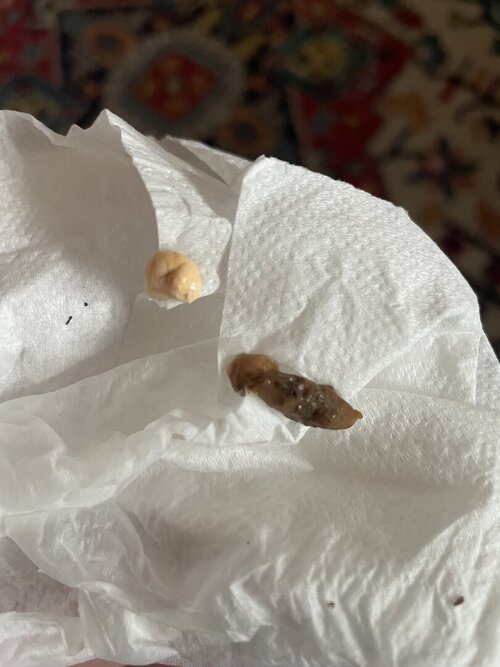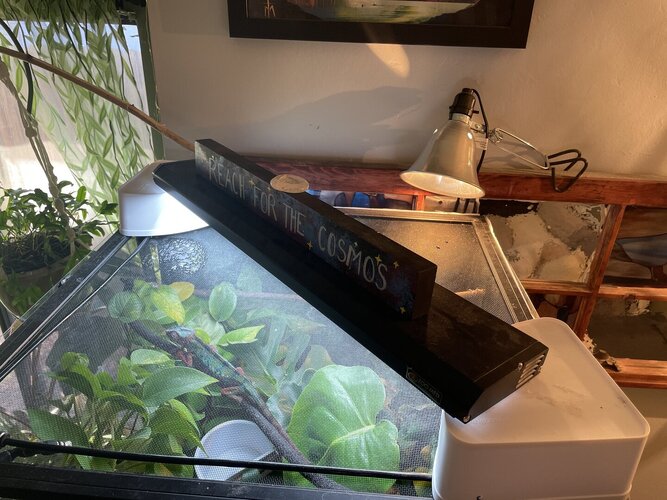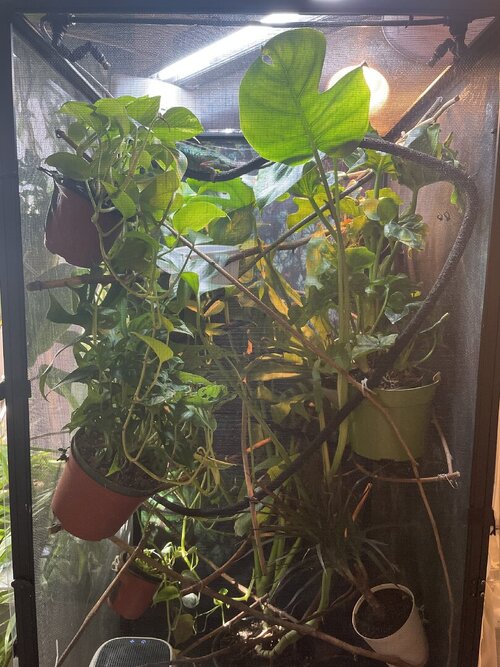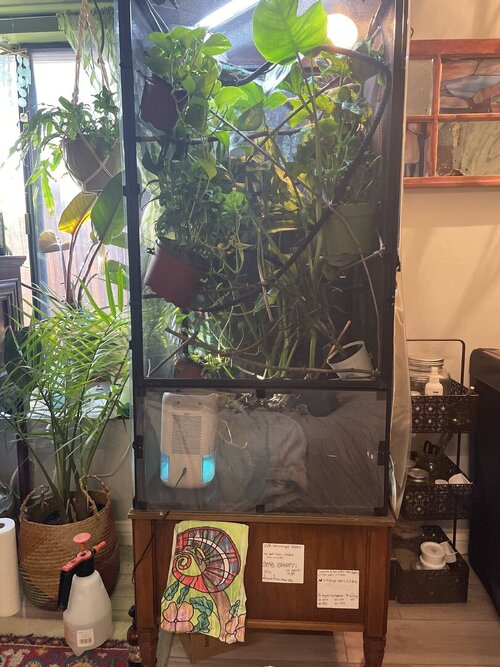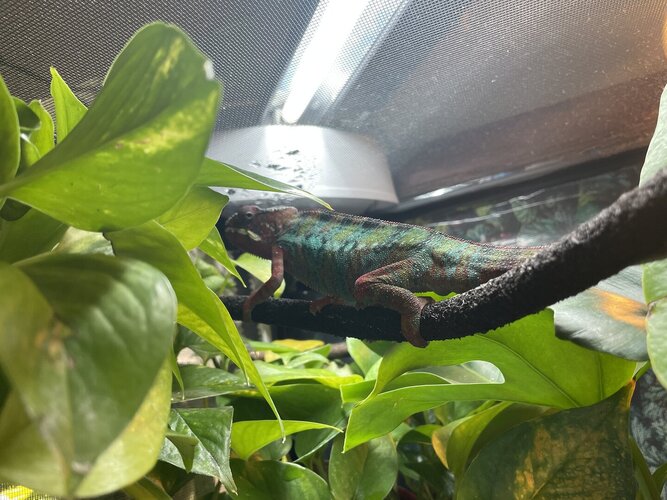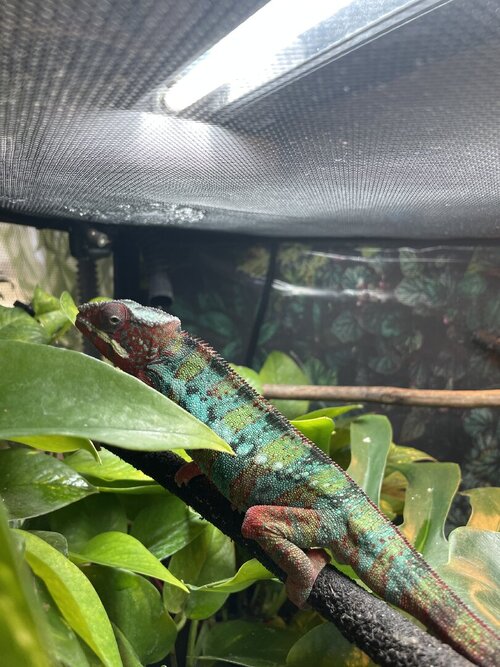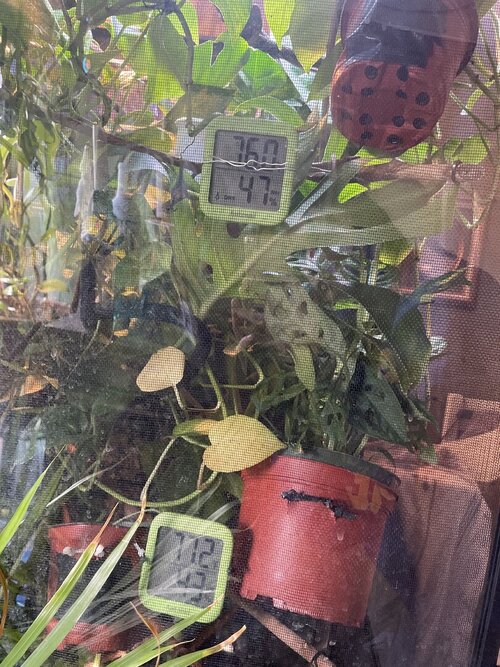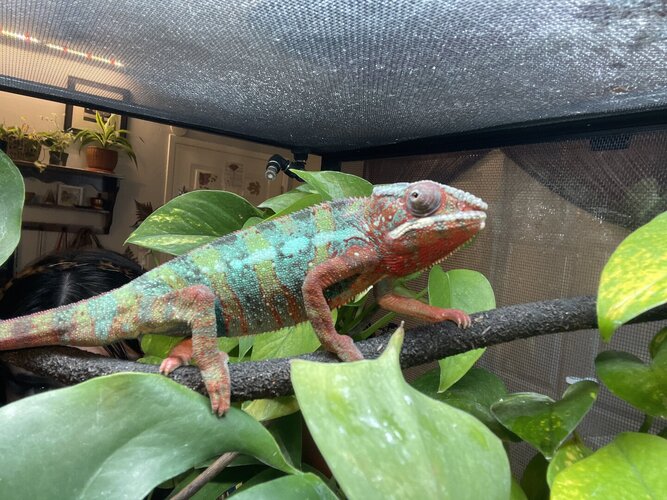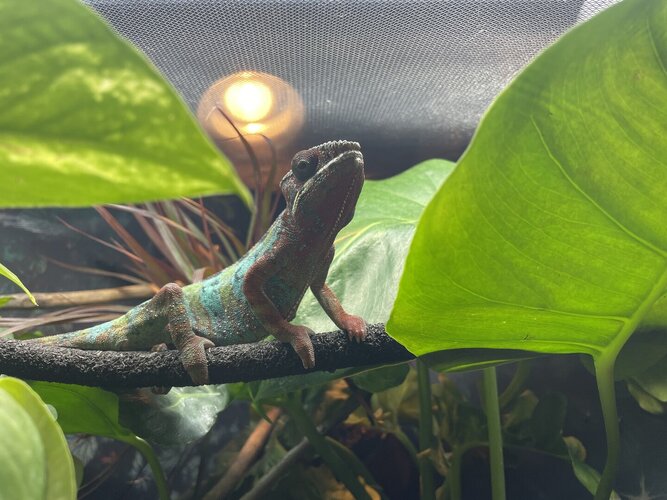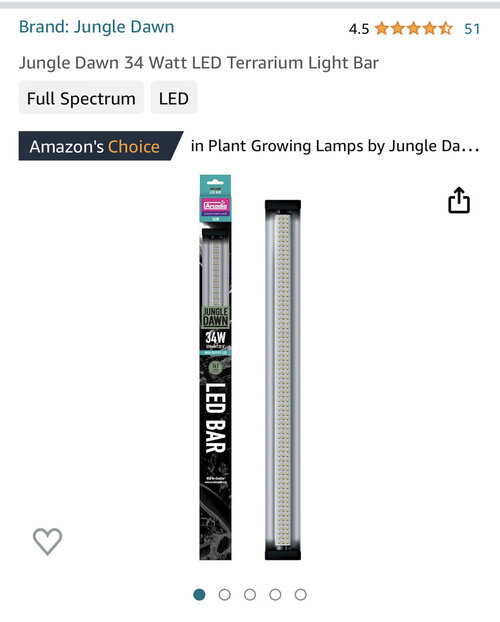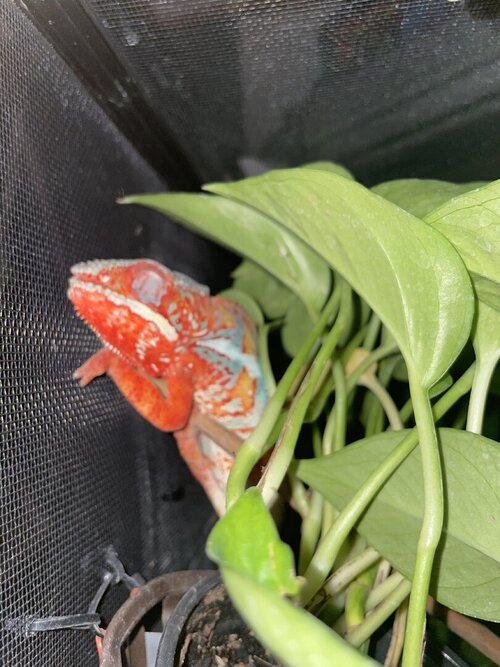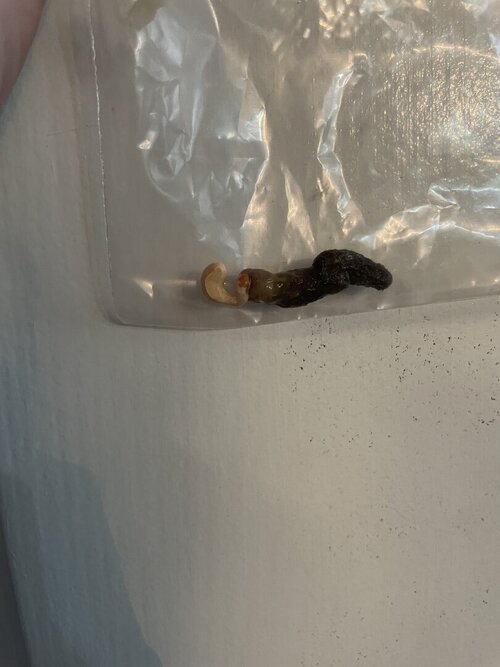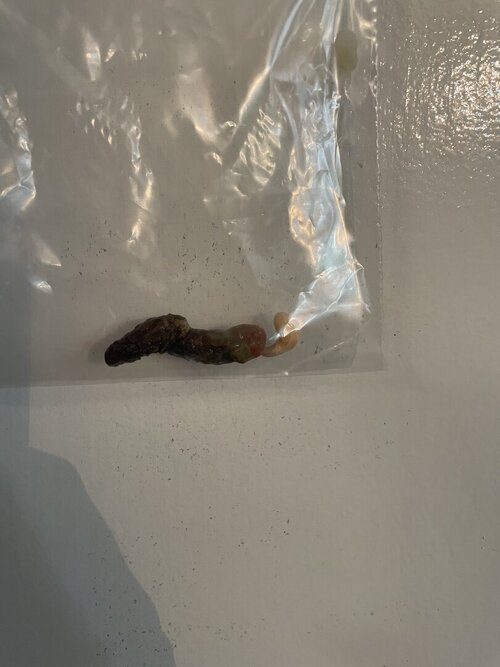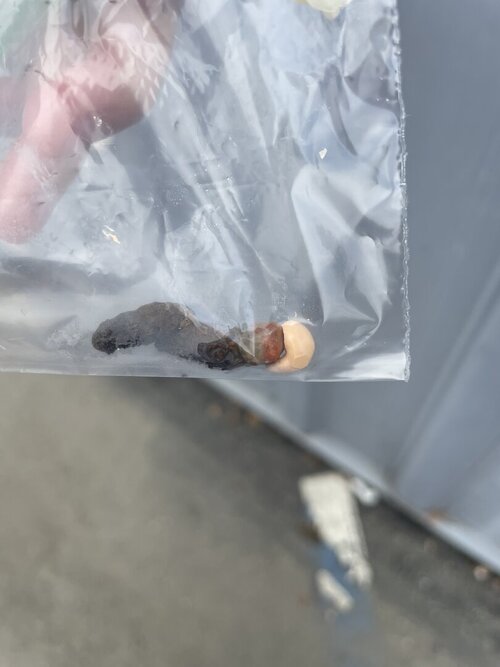reach4thecosmo
New Member
So this is my first chameleon, and first reptile, and unfortunately I have already made mistakes because of this. My panther chameleon cosmo is a year old and had MBD and was treated for it with calcium injections. It has been hard to find a vet that I can trust, as the first vet I contacted when I figured out his condition sent him back and told me to use calcium supplements and he would recover on his on. Absolutely not true, as he needed injections which I got from another vet. He also had, on top of that, parasites, which was treated. Since then, he was doing fine up until this winter when I noticed him going to bed earlier than usual. He would turn in hours before his lights went out, and when I asked the vet he said it was normal. I changed his light cycle to 10 hours because I thought the shorter hours of light this winter was affecting him. However, recently I took him to the vet to test for parasites because I found him sleeping at 1 pm and he hadn't been tested in over 6 months. I thought that this might be why he was sleeping and generally more lethargic. His test was negative, and I asked the vet if he was a healthy weight and all he told me was what he used to weigh and what he weighs now. He's only 69 grams and had only gained 3 grams from the last time, and as I looked it up I figured out that he must be underweight which could be contributing to his lethargy. Since then I've gotten a document to track his husbandry, such as temperatures/humidity, eating, pooping, supplements etc. It has been very helpful and he's already gained 5 grams.
I wanted advice to see if this is a good assumption for what is going on with him. I got concerned today because he made a weird sound and it almost seemed like he'd throw up, but he didn't. It got me worried about a respiratory illness because I was curious before if that was something that was affecting him. His temperature always stays around 72°F even at night, but the humidity has been around 60%-67% during the day at the highest and 80+% at night just after midnight. I've recently gotten a small dehumidifier to put in to lower it during the day, however I've seen some conflicted information about daytime humidity. I follow information I've gotten from Chameleon Academy, which says 40-50% during the day which is part of why I was concerned about a respiratory issue. His basking temp is 81°F and he has all live plants in his enclosure. I haven't really heard any labored breathing outside of this instance today, with maybe a similar instance awhile ago but not regularly. He doesn't really have his head tilted up, which I know is a sign but I'm curious what the early signs are since I wouldn't want it to get that bad. He also injured his tongue just yesterday, he grabbed the tong I was using to feed him. Although it was rubber tipped he still held on to it and didn't want to let go until it was in his mouth. He was still able to eat, just couldn't shoot as far.
Let me know your thoughts! I've included a picture of him and his poop.
I wanted advice to see if this is a good assumption for what is going on with him. I got concerned today because he made a weird sound and it almost seemed like he'd throw up, but he didn't. It got me worried about a respiratory illness because I was curious before if that was something that was affecting him. His temperature always stays around 72°F even at night, but the humidity has been around 60%-67% during the day at the highest and 80+% at night just after midnight. I've recently gotten a small dehumidifier to put in to lower it during the day, however I've seen some conflicted information about daytime humidity. I follow information I've gotten from Chameleon Academy, which says 40-50% during the day which is part of why I was concerned about a respiratory issue. His basking temp is 81°F and he has all live plants in his enclosure. I haven't really heard any labored breathing outside of this instance today, with maybe a similar instance awhile ago but not regularly. He doesn't really have his head tilted up, which I know is a sign but I'm curious what the early signs are since I wouldn't want it to get that bad. He also injured his tongue just yesterday, he grabbed the tong I was using to feed him. Although it was rubber tipped he still held on to it and didn't want to let go until it was in his mouth. He was still able to eat, just couldn't shoot as far.
Let me know your thoughts! I've included a picture of him and his poop.

